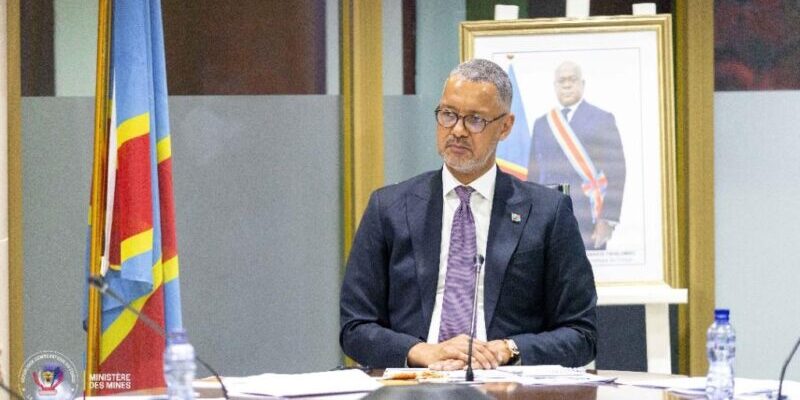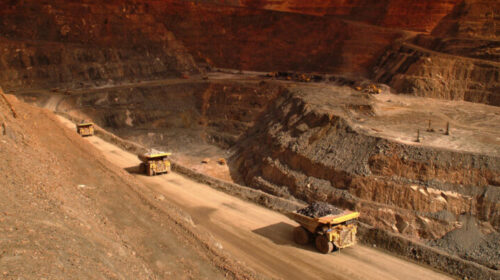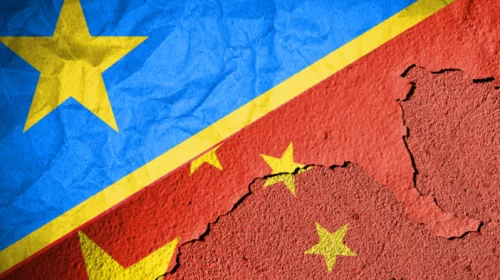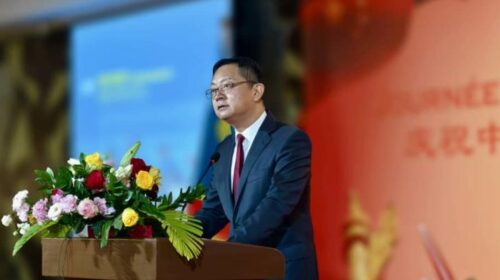DRC’s Minister of Mines Commits to Eradicating Child Labor in Cobalt Mining
In a press release dated October 14, 2024, the Ministry of Mines of the Democratic Republic of Congo expressed its “astonishment” at the inclusion of Congolese cobalt on the list of products potentially associated with child labor, as reported by the United States Department of Labor. This statement follows a previous reaction from the government through the Ministry of Communication and Media.
The ministry pointed out that while this decision highlights ongoing challenges in certain regions related to artisanal cobalt mining—representing only 5% of the country’s national production—it fails to acknowledge the significant progress made by the Congolese government. F
urthermore, the report focuses solely on cobalt, neglecting other critical resources such as copper, which face similar issues. This selective reporting appears biased and undermines the consistent efforts of the Congolese mining sector to meet international standards, potentially damaging the sector’s reputation globally.
Recognizing cobalt’s vital role in the global energy transition, the Congolese government is aware of its responsibility in addressing climate change challenges.
The Ministry of Mines reiterated its strong commitment to “eradicating child labor, particularly in artisanal mining of cobalt and copper.”
It emphasized that these two essential minerals must contribute to improving the living conditions of Congolese citizens. Currently, 95% of cobalt production in the DRC adheres to ethical standards set by the government and listed companies, with only 5% coming from artisanal mining, which still poses challenges.
To meet national and international requirements, the Ministry of Mines, led by Minister Kizito Pakabomba, is collaborating with bilateral and multinational partners and international organizations to implement several initiatives aimed at ensuring ethical mining practices that respect human rights and environmental protections.
Key Initiatives and Actions Underway:
- Formalization of Artisanal Mining:
The Ministry of Mines has established cooperatives to supervise artisanal miners working in artisanal mining zones (ZEA). These cooperatives aim to structure and oversee extraction activities while ensuring compliance with international standards and eliminating illegal exploitation. This formalization is a crucial step toward better management of mining practices in the country. - Creation of the Interministerial Commission on Child Labor (CISTEMA):
An interministerial commission has been formed to coordinate efforts against child labor in artisanal mines. CISTEMA, with the Ministry of Mines playing a pivotal role, aims to centralize and harmonize national initiatives to protect children in mining areas. - Strengthening Controls and Monitoring in Mining Areas:
In partnership with the Ministry of Labor and various local and international organizations, monitoring systems have been established to identify children potentially exposed to hazardous working conditions in mines. These efforts aim to eradicate child labor at its source by directly intervening in high-risk areas. - International Cooperation for Ethical Traceability:
The Ministry of Mines collaborates with international organizations, such as the International Labor Organization (ILO), and multinational companies to ensure the traceability of minerals extracted in the DRC. These initiatives ensure that Congolese minerals, essential to the global technology industry, adhere to strict ethical standards.
According to the Ministry of Mines, these efforts have already led to the identification and registration of 16,845 children in artisanal mining areas.
Of these, 13,587 (both boys and girls) have been removed from these sites and provided with educational, health, psychological, and civil registration support. Their parents are also undergoing economic reconversion through agricultural cooperatives.
The Ministry of Mines calls on stakeholders in the global supply chain to recognize and support these initiatives. The development of a responsible mining sector requires coordinated action from both national and international stakeholders.
“The government of the DRC remains open to any collaboration aimed at improving working conditions in the mining sector and eradicating child labor,” the press release stated. It also reiterated that the Ministry’s actions align with the United Nations Sustainable Development Goals (SDGs) and the DRC’s international commitments.
“These efforts demonstrate a national desire to promote sustainable economic development while respecting the fundamental rights of local populations.”
The Ministry urges the international community to adopt a more balanced approach, recognizing collective responsibility in combating child labor practices.
Foreign companies benefiting from Congolese mineral resources are encouraged to actively support local initiatives and ensure that mining operations comply with ethical standards and universal human rights.
89 total views , 1 views today





